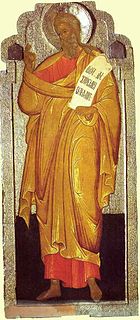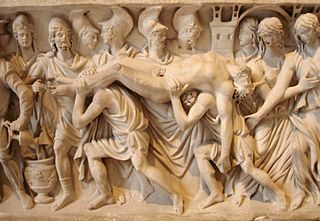 W
WThis is a list of people named after Abraham, the Biblical patriarch ; the father of the Abrahamic Religions, Judaism, Christianity and Islam:
 W
WAlphons is a male given name recorded from the 8th century in the Christian successor states of the Visigothic kingdom in the Iberian peninsula. In the later medieval period it became a standard name in the Hispanic and Portuguese royal families.
 W
WCuauhtémoc, also known as Cuauhtemotzín, Guatimozín, or Guatémoc, was the Aztec ruler (tlatoani) of Tenochtitlan from 1520 to 1521, making him the last Aztec Emperor. The name Cuauhtemōc means "one who has descended like an eagle", and is commonly rendered in English as "Descending Eagle", as in the moment when an eagle folds its wings and plummets down to strike its prey. This is a name that implies aggressiveness and determination.
 W
WDaniel is a masculine given name and a surname of Hebrew origin. It means "God is my judge", and derives from two early biblical figures, primary among them Daniel from the Book of Daniel. It is a common given name for males, and is also used as a surname. It is also the basis for various derived given names and surnames.
 W
WDavid is a common masculine given name of Biblical Hebrew origin, as King David is a figure of central importance in the Hebrew Bible and in Christian, Sabbatean Judaism, and Islamic religious tradition.
 W
WEduardo is the Spanish and Portuguese form of the male given name Edward. Another version is Duarte. It may refer to:
 W
WGabriel is a given name derived from the Hebrew name Gaḇrīʾēl (גַבְרִיאֵל) meaning "God is my strength" or "God is my (strong) man". The name was popularized by the association with the archangel Gabriel.
 W
WHector is an English, French, Scottish, and Spanish given name. The name is derived from the name of Hektor, a legendary Trojan champion who was killed by the Greek Achilles. The name Hektor is probably derived from the Greek ekhein, meaning "to check", "restrain". In Scotland, the name Hector is sometimes an anglicised form of the Scottish Gaelic Eachann, and the pet form Heckie is sometimes used. The name of Sir Ector, the foster father of King Arthur, is also a variant of the same.
 W
WLeonardo is a masculine given name, the Italian, Spanish, and Portuguese equivalent of the English, German, and Dutch name, Leonard.
 W
WMarco is an Italian masculine given name of Etruscan and Latin origin, derived from Marcus. It derives from the Roman god Mars. It has also Germanic origin from the element "marah".
 W
WOmar/Umar or Omer/Umer, is a masculine given Semitic name, which is represented in Jewish, Christian, and Islamic traditions.
 W
WOsorio is a surname of Spanish and Basque origins. One meaning of the name is “hunter of wolves”. Notable people with this surname include:
 W
WRaphael is a name of Hebrew origin, from rāp̄ā and ēl. Popularized in Western Europe, it can be spelled Raphael, Raphaël, Rafael, Raffael, Raffaello, Raffiel, Refoel, Raffaele, or Refael depending on the language.
 W
WRoman is a male given name that originated within the Roman Empire, via Latin and sequentially the Greek language. In its initial sense, the title "Roman", denotes a member of the Roman Empire, or belonging to or identifying with Roman culture. It most likely evolved from Romulus, the legendary co-founder of Rome. It can also be an ancient Germanic given name, derived from Proto-Germanic *Hrōþi- "famous" and *mann "man" (Hrōþimannaz). It's sometimes also used as a literal translation of the name Robert.
 W
WSamuel is a male given name and a surname of Hebrew origin meaning either "name of God" or "God heard". Samuel was the last of the ruling judges in the Old Testament. He anointed Saul to be the first King of Israel and later anointed David.
 W
WSebastian is both a given name and a surname. It comes from the Greek name Sebastianos (Σεβαστιανός) meaning "from Sebastia" (Σεβάστεια), which was the name of the city now known as Sivas, located in the central portion of what is now Turkey; in Western Europe the name comes through the Latinized intermediary Sebastianus. The name of the city is derived from the Greek word σεβαστός (sebastos), "venerable", which comes from σέβας (sebas), "awe, reverence, dread", in turn from the verb σέβομαι (sebomai), "feel awe, scruple, be ashamed". Sebastos was the Greek calque of the title Augustus, which was used for Roman emperors. Sebastian became a widely used name because it was the name of Saint Sebastian, a third-century Christian martyr.